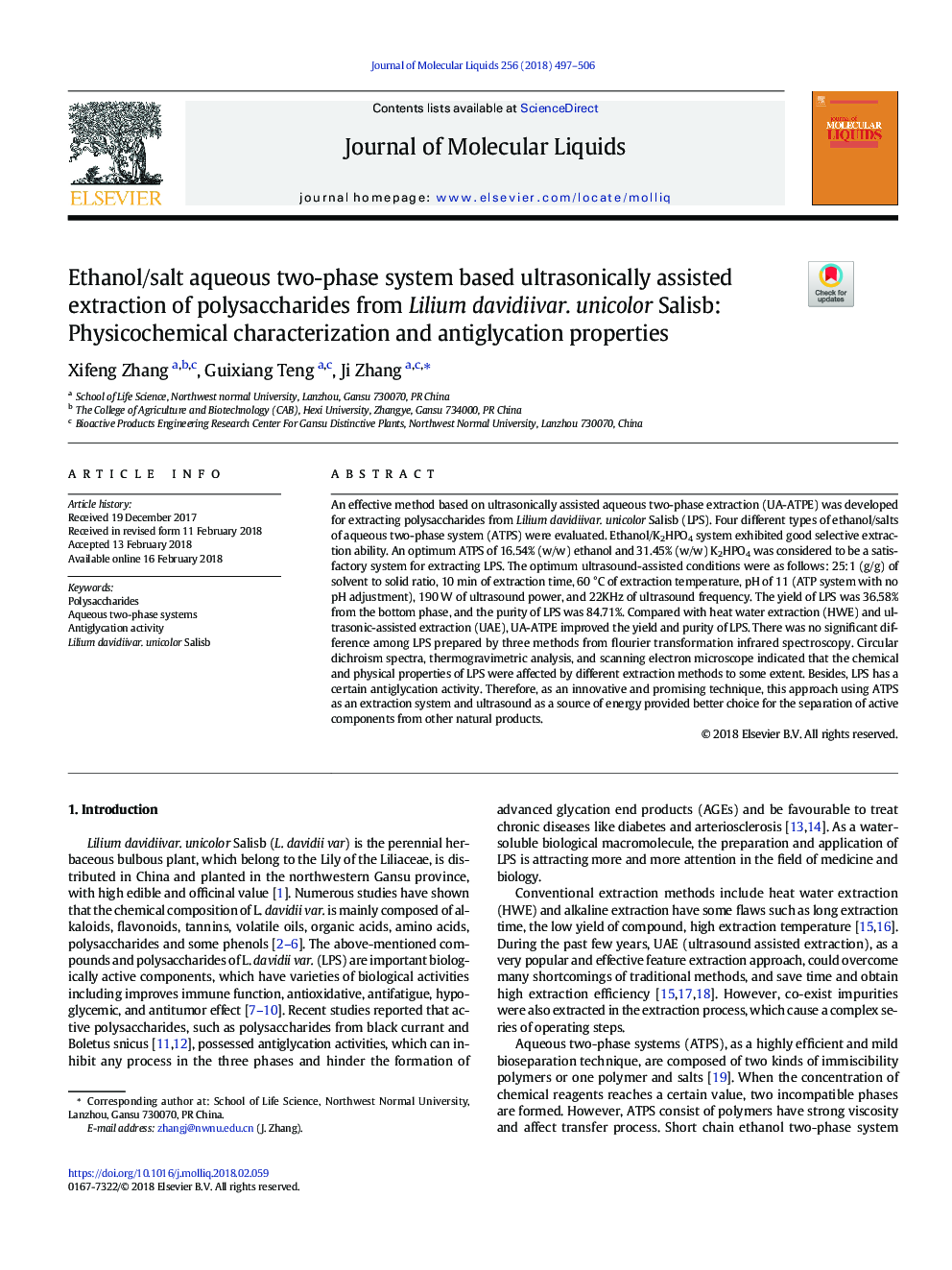| Article ID | Journal | Published Year | Pages | File Type |
|---|---|---|---|---|
| 7842928 | Journal of Molecular Liquids | 2018 | 10 Pages |
Abstract
An effective method based on ultrasonically assisted aqueous two-phase extraction (UA-ATPE) was developed for extracting polysaccharides from Lilium davidiivar. unicolor Salisb (LPS). Four different types of ethanol/salts of aqueous two-phase system (ATPS) were evaluated. Ethanol/K2HPO4 system exhibited good selective extraction ability. An optimum ATPS of 16.54% (w/w) ethanol and 31.45% (w/w) K2HPO4 was considered to be a satisfactory system for extracting LPS. The optimum ultrasound-assisted conditions were as follows: 25:1 (g/g) of solvent to solid ratio, 10 min of extraction time, 60 °C of extraction temperature, pH of 11 (ATP system with no pH adjustment), 190 W of ultrasound power, and 22KHz of ultrasound frequency. The yield of LPS was 36.58% from the bottom phase, and the purity of LPS was 84.71%. Compared with heat water extraction (HWE) and ultrasonic-assisted extraction (UAE), UA-ATPE improved the yield and purity of LPS. There was no significant difference among LPS prepared by three methods from flourier transformation infrared spectroscopy. Circular dichroism spectra, thermogravimetric analysis, and scanning electron microscope indicated that the chemical and physical properties of LPS were affected by different extraction methods to some extent. Besides, LPS has a certain antiglycation activity. Therefore, as an innovative and promising technique, this approach using ATPS as an extraction system and ultrasound as a source of energy provided better choice for the separation of active components from other natural products.
Related Topics
Physical Sciences and Engineering
Chemistry
Physical and Theoretical Chemistry
Authors
Xifeng Zhang, Guixiang Teng, Ji Zhang,
